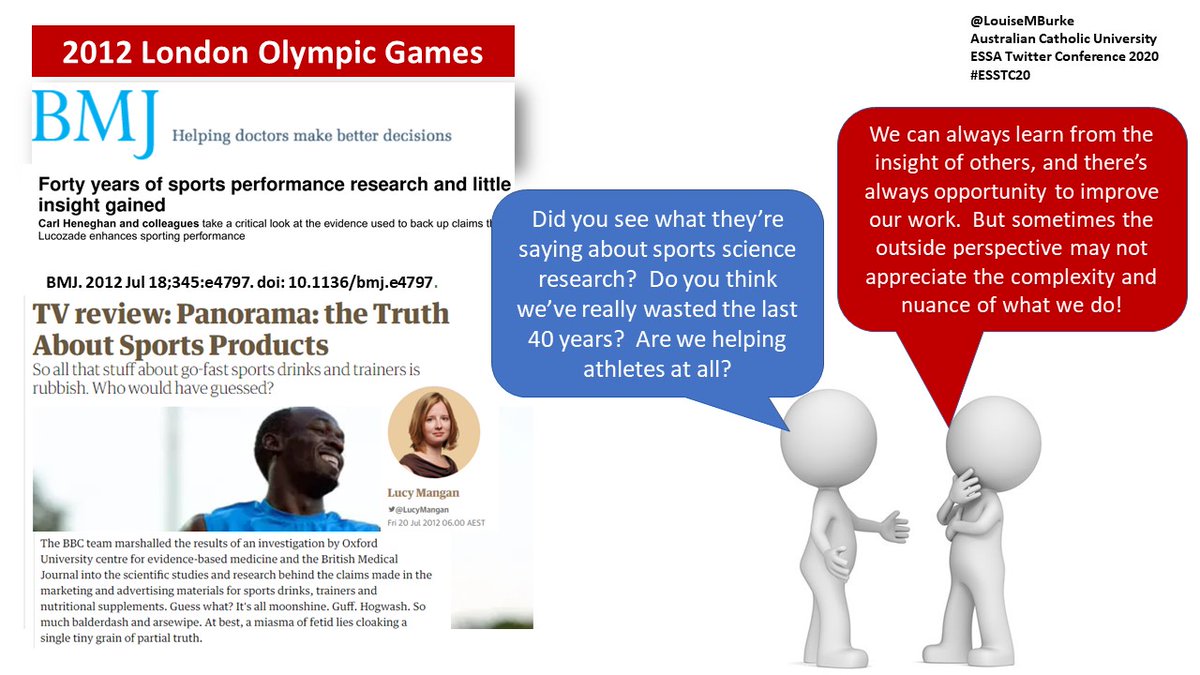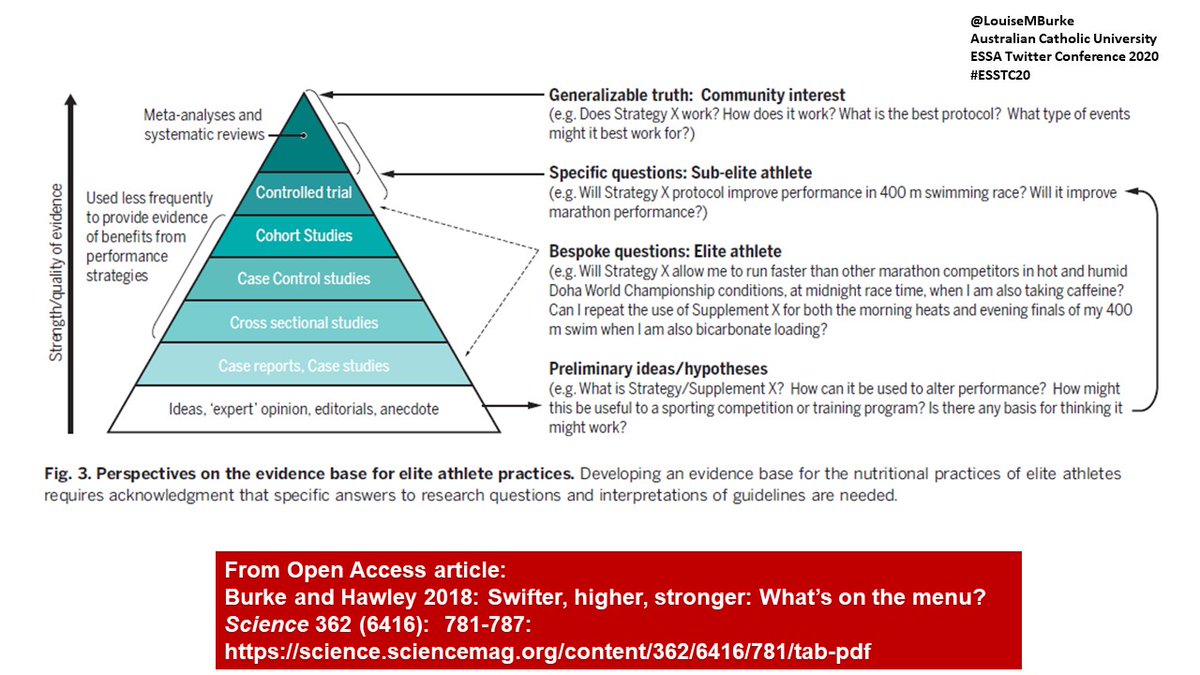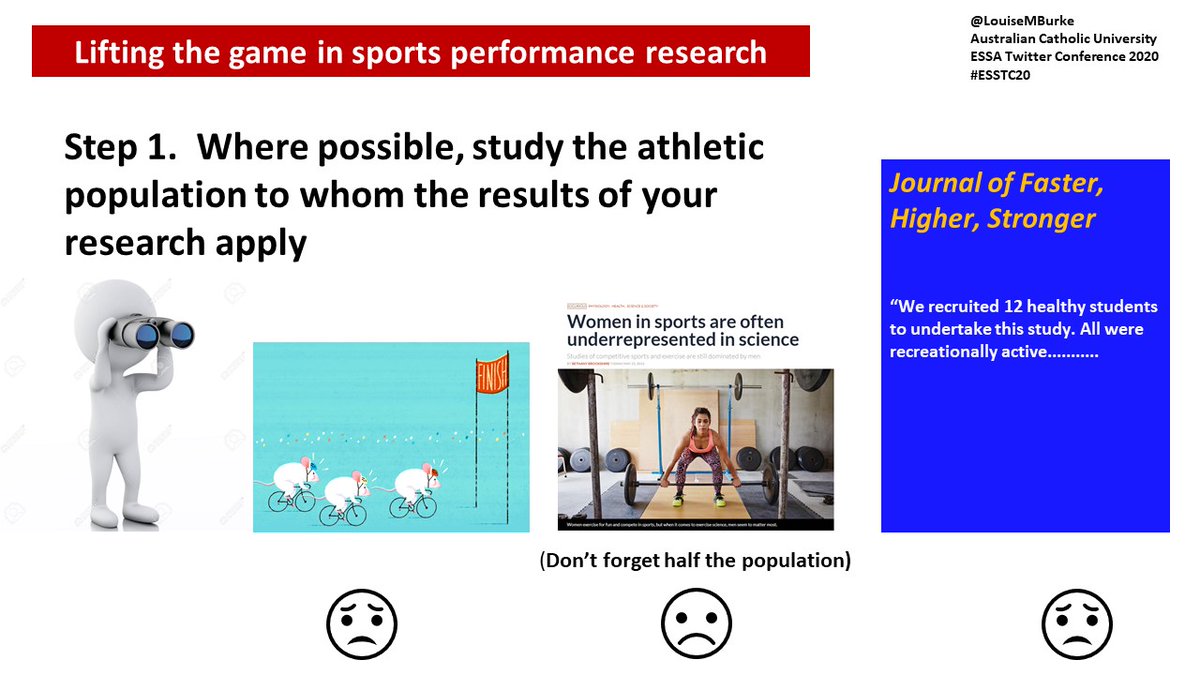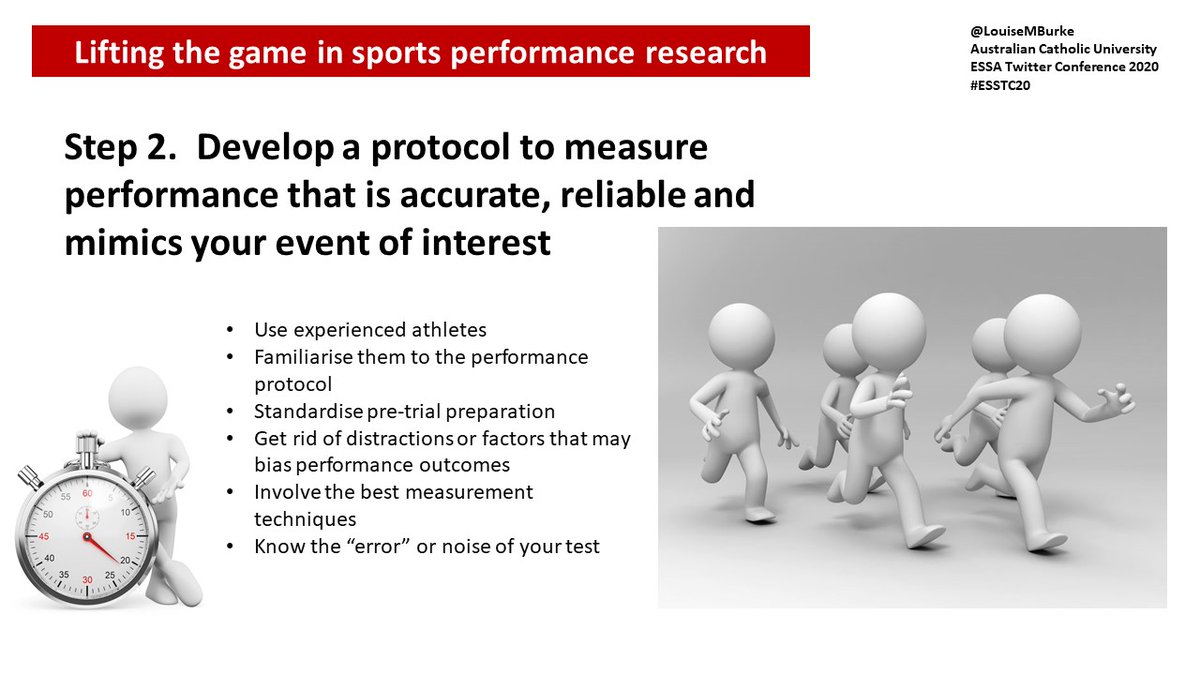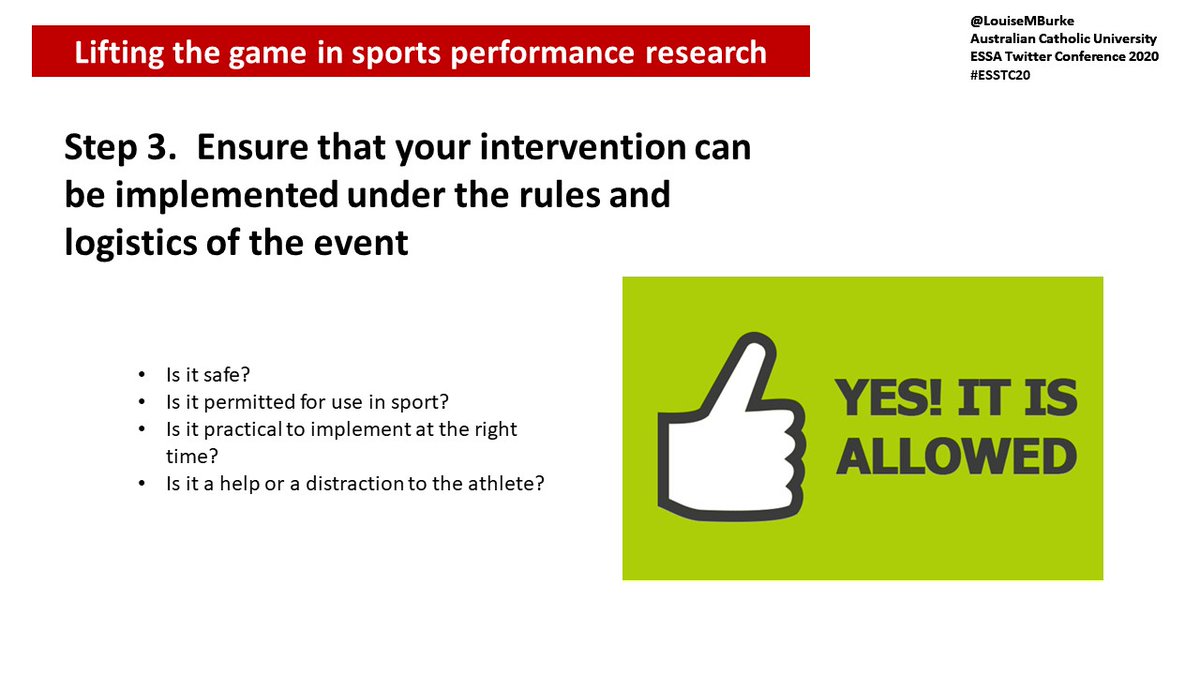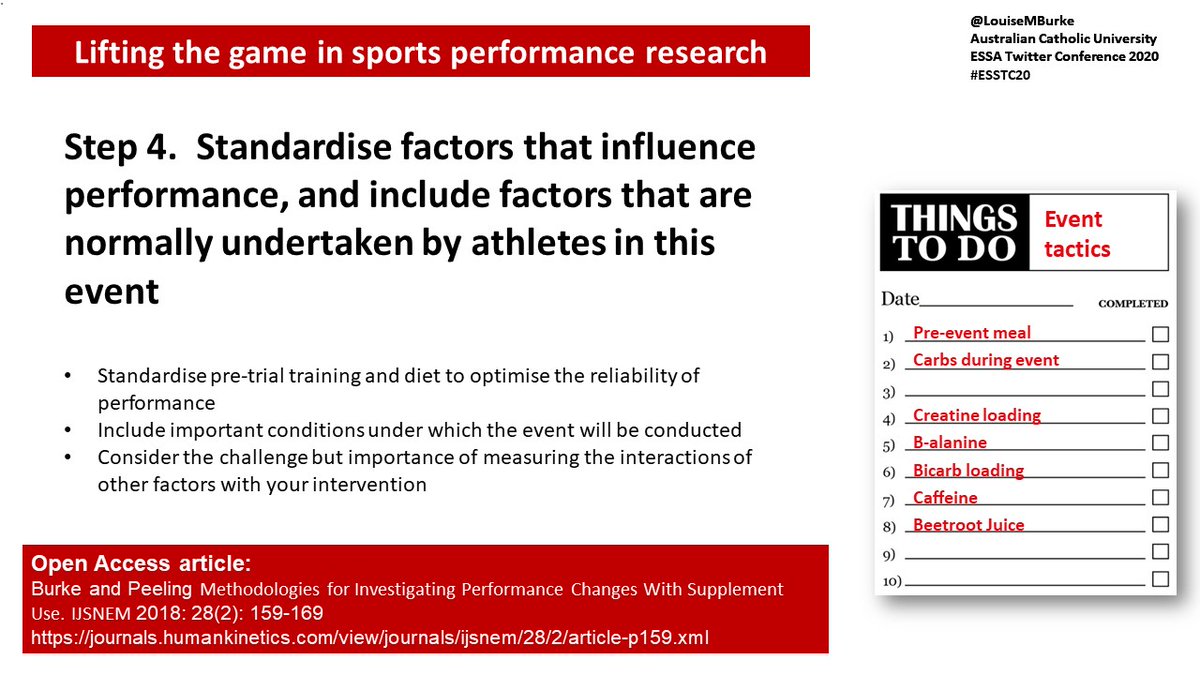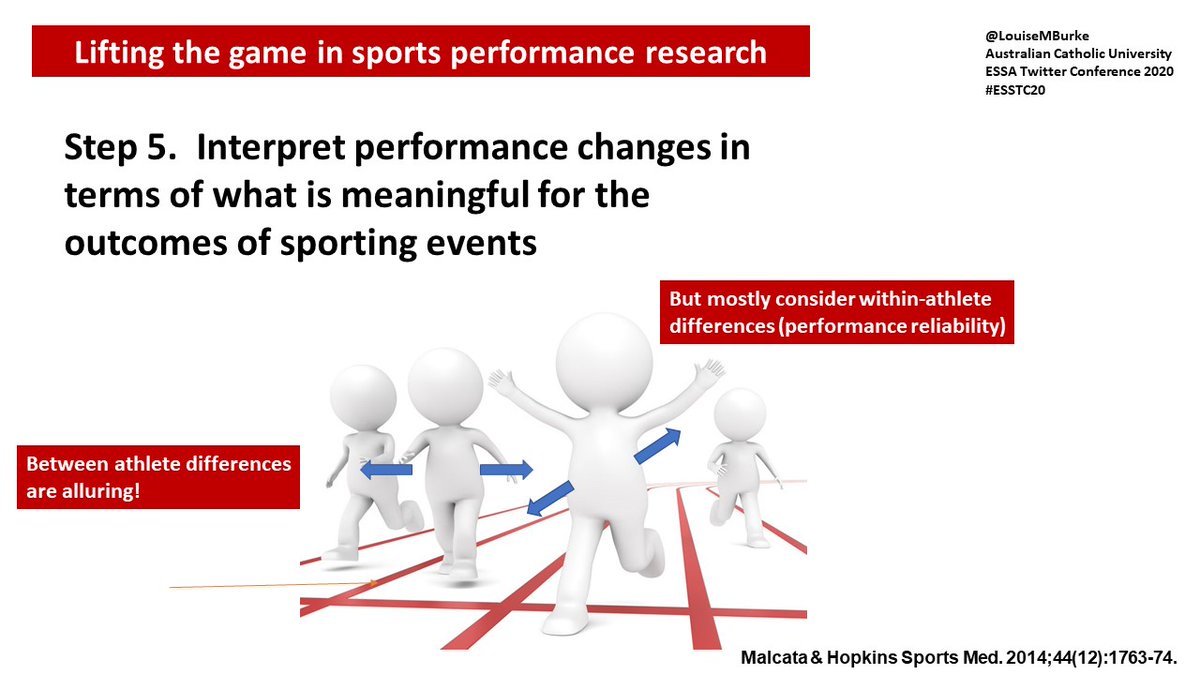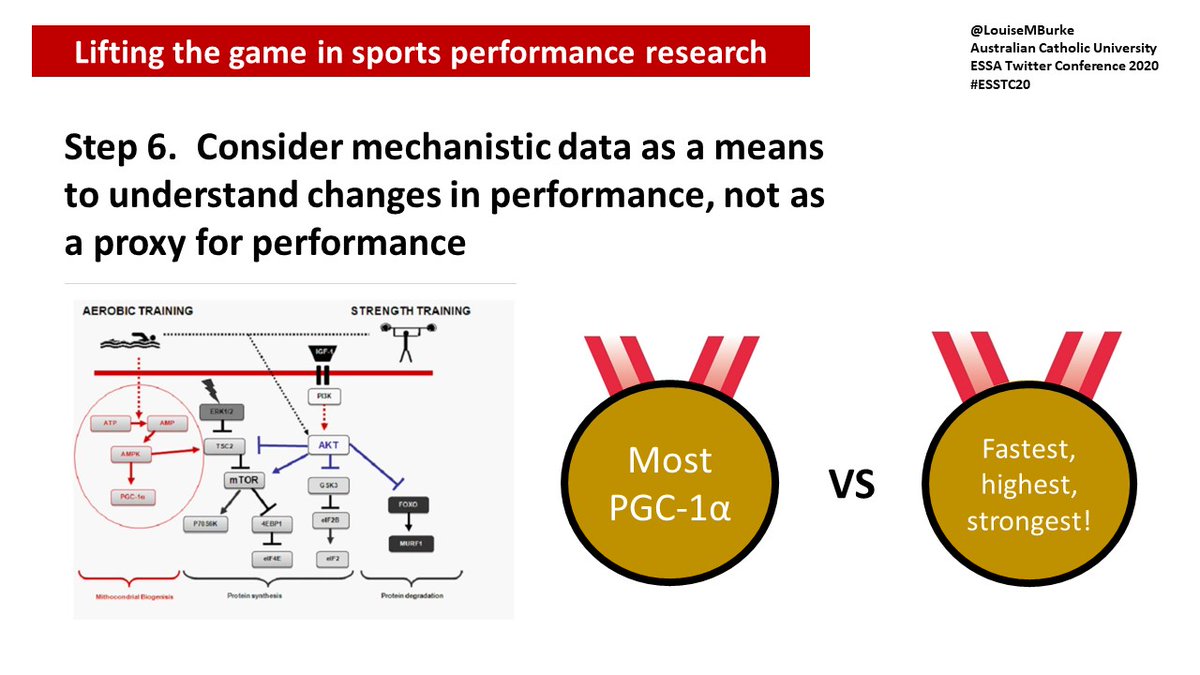1/10 Working with elite athletes may not be rocket science. Yet, what we do is complex and challenging. Athletes win and lose by tiny margins. But they also provide us with insights to apply to health for all the community. How can we enhance sports science research? #ESSTC20
2/10 We must properly frame the questions we need to answer. Often, we are not trying to develop a generalisable rule. High performance sport often requires bespoke and complex solutions. There are different ways to find evidence for different types of questions. #ECSSTC20
3/10 Very few studies are conducted on elite athletes. However, if we want to apply the results of our studies to high performance sport, we need to account for the special characteristics of such groups. #ECSSTC20
4/10 Measuring sports performance in a precise and meaningful way is one of the hardest parts of sports science research. Time to exhaustion tells us something about exercise capacity but doesn’t capture the complexity of most sports. #ECSSTC20
5/10 A new intervention is only useful if it can be implemented within the rules and logistics of the event of interest. Some interventions may look good “on paper”, but aren’t practical for use in real-life competition #ECSSTC20
6/10 Testing athletes who are overnight fasted, drinking water, in a cool lab etc may create a “clean” look at a new intervention. But it fails to capture the real-life nature of sport. Build the conditions of your event and other athlete strategies into your research design.
7/10 Sport thrills us with close finishes. We often look at the results of studies in terms of the margins of winning and losing. But, we also need to consider the magnitude of the effect of an intervention compared to daily variability in athletic performance
8/10 A whole bunch of factors in blood and muscle explain how we respond to exercise. They can illuminate our understanding and position our papers in good journals. But there are no medals for being the athlete with the best alphabet soup! #ECSSTC20
9/10 Ten athletes went faster after your intervention. 1 athlete was slower. A non-responder? A bad day at the office? Measurement error? Some athletes are truly “special” in their response to a treatment, but all explanations need to be considered #ECSSTC20
10/10 When sports science is done well, we can help athletes to break barriers. And the results will trickle down to better resources and information to allow all community members to enrich their lives and improve their health with exercise #ECSSTC20 https://modernwisdom.libsyn.com/112-alex-hutchinson-breaking-the-world-marathon-record

 Read on Twitter
Read on Twitter